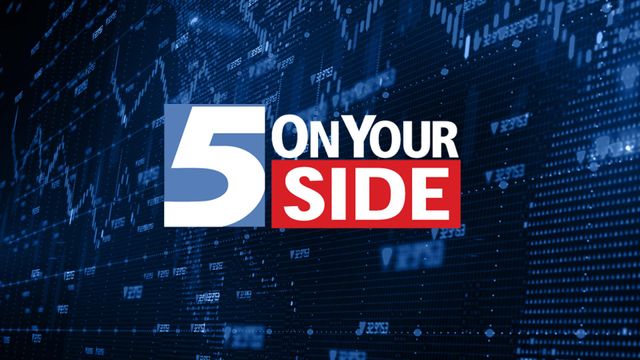Are we headed for a recession? 5 On Your Side polled a group of experts for the answers
Are we heading into a recession? It’s more complicated than a yes or no answer, so to try and figure it out, 5 On Your Side reached out to 13 local economists.
Eight responded and most agreed we are not in a recession now.
We also asked is a recession coming, the indicators to watch for and if the Triangle can weather the storm better than most.
{
"name": "anchor",
"attrs": [],
"children": null
}When we asked people on the street, Nikki Pretty told 5 On Your Side she thinks a recession is coming.
"Increase in prices, interest rates going up," Pretty said when we asked her reasoning.
There are also indicators that point to a good economy — the job market, consumer spending and manufacturing.
"We have a lot of confusing signals that are happening right now," said Charles Ibeziako, an associate professor of economics at Saint Augustine’s University and one of the experts who answered our questions about the possibility of a recession on the horizon.
Four economists told us they think a recession is coming or likely by the end of 2023, two were on the fence and Ibeziako was one of two who think a recession is less likely.
"If were going to have a recession its going to be mild," Ibeziako said.
Harrison Fell, associate professor in the Department of Agricultural and Resource Economics at NC State, was one who told us it’s more likely than not we will be in a recession by the end of 2023.
"The rising interest rates seem to be cooling the economy sufficiently that we are starting to see cracks in the relatively strong job market. In addition, energy prices, which are a key driver of the inflation we’re currently experiencing, do not seem likely to subside as Russia’s war in Ukraine continues and other energy producers across the globe are slow to fill the gap."
"Persistently high energy prices, combined with a weakening job market, seem likely to push us into a recession by the end of 2023."
Wake Technical Community College Economic Professor Forbes Dixon added: "If the Federal Reserve continues its tightening policy, there is the possibility of slower growth, no growth, or stagnation, not necessarily a recession."
Q: What are the biggest signals to watch for that indicate we are entering a recession?
While economists said there really isn’t one signal to watch, unemployment was mentioned most often in their responses. The University of North Carolina at Chapel Hill Chief Economist Gerald Cohen explained it this way: "Does the unemployment rate rise meaningfully – I won’t worry if it jumps around from month to month – or do we see outright job loss."
"We are not recession proof, but we have the opportunity of being in an area with a lot of academic facilities where people can easily retrain and get to do things that are going to benefit them in the long run," Ibeziako said.
This is where all our economists agree — the Triangle is not recession proof, but the area is in a strong position to withstand a recession or recover from one. Three of the reasons being how much the area has recently grown, the diverse economy and the state’s good financial position.
Mark Steckbeck, associate professor of Economics and Lundy Chair in Business Philosophy at Campbell University, expanded on those points: "We are experiencing exceptional growth here in the Triangle, which should reduce the impact of a recession compared to more industrialized areas that produces durable goods and areas impacted by supply chain issues."
"We are also diversifying our economy a bit more, especially in the state, which typically reduces economic declines, assuming we are producing more pro and counter-cyclical goods and services. (Think of Texas, which is diversified, and Oklahoma, which is not. Oklahoma typically suffers more from a recession.) I expect we’ll see some slowdown here, but, especially with job growth, it will not be as severe as some other locations."
Among economists asked, their answers were evenly split among recession, soft landing and a 50/50 chance.
Angelo Kourkafas, investment strategist at Edward Jones, was one of the economists that believes it could go either way.
"The Fed is trying to orchestrate a soft landing, which is a tough balancing act," he said. "Raise borrowing costs enough to slow growth and tame inflation, but not so much as to trigger an economic downturn. With the inflation peak likely behind us, we assign equal probabilities between a soft landing and a mild recession."
Q: Is it harder now to predict what's coming than it was before the COVID-19 pandemic?
Some experts noted it’s never easy to predict the economy.
Mike Walden, a distinguished professor emeritus at NC State, said: "Yes, particularly in the labor market. I’ve been a professional economists for 45 years, and I have never witnessed worries about a recession when the labor market was so strong. It’s the ‘wild card’ that is keeping many economists from ‘calling’ a recession."
Q: What are you doing to prepare for a possible recession?
Ken Bell, president of Aspera Financial, said: "I’m always prepared for a recession, personally. Making sure you have adequate emergency funds and proactive contingency plans would be helpful for anyone. It never hurts to be prepared for bad outcomes, even if they never come."











